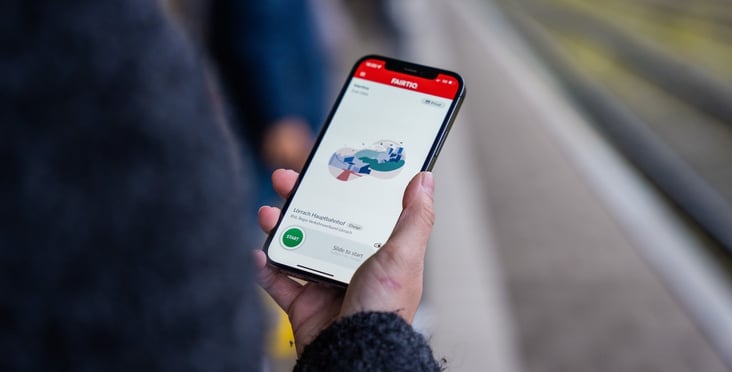
According to a recent analysis, automatic ticketing accounts for a growing share of the Swiss public transport industry's sales and turnover
Buying your ticket from a machine or the ticket office is quickly becoming a thing of the past, as ever more public transport users are making the switch to smartphone-based ticketing solutions. This is one of the findings of a Switzerland-wide market analysis by the public transport industry organisation Alliance Swisspass, which notes that "Automatic ticketing is growing at a slightly faster pace than other sales channels." It is forecast that all public transport ticket sales in Switzerland will be fully digital by 2035, significantly reducing the need for ticket machines and ticket counters. The goal here is to make travelling by train, bus and tram as easy as taking the car.
Automated Ticketing (AT) (or PAYG ticketing) is an advanced technology for ticket distribution. In contrast to "conventional" distribution channels, travellers no longer buy a ticket before their journey. Instead, the start and destination of the journey is recorded via smartphone app. At the end of the day, the system calculates the best possible price for the journeys made and invoices the costs incurred.
Switzerland – an automatic ticketing pioneer
FAIRTIQ, the technology company founded in 2016, played a decisive role in making it easier for travellers to use public transport without any need to plan their journey ahead of time. Its ticketing solution, which FAIRTIQ developed in cooperation with various Swiss public transport companies, has been a game-changer. Since its successful first Switzerland-wide market test in 2018, user numbers and ticket sales turnover have quadrupled. The idea underpinning 'postpaid ticketing' is simple: the traveller checks in on their smartphone app which starts recording the journey; they board their chosen mode of public transport, travel to their destination, get off, check out on the app, and pay for their journey later. In the background, the system calculates the fare for the journey made and charges it to the traveller.
In 2020, following a successful pilot phase, this new cashless and paperless sales channel was rolled out across Switzerland, making it the first country to offer automatic ticketing not only nationwide but also for all forms of public transport. "This bolsters our innovative spirit," says Silvia Kandera, project manager at Alliance SwissPass.
Automatic ticketing on the up and up since 2018
The Alliance Swisspass industry analysis found that automatic ticketing has experienced exponential sales growth in the first three years since its launch. Customers increasingly preferred to use their smartphone to buy their public transport tickets over all other sales channels, including ticket vending machines and ticket counters. Last year, postpaid ticketing sales enjoyed a slightly higher rise than single ticket sales.
Postpaid ticketing turnover since the 2018 launch
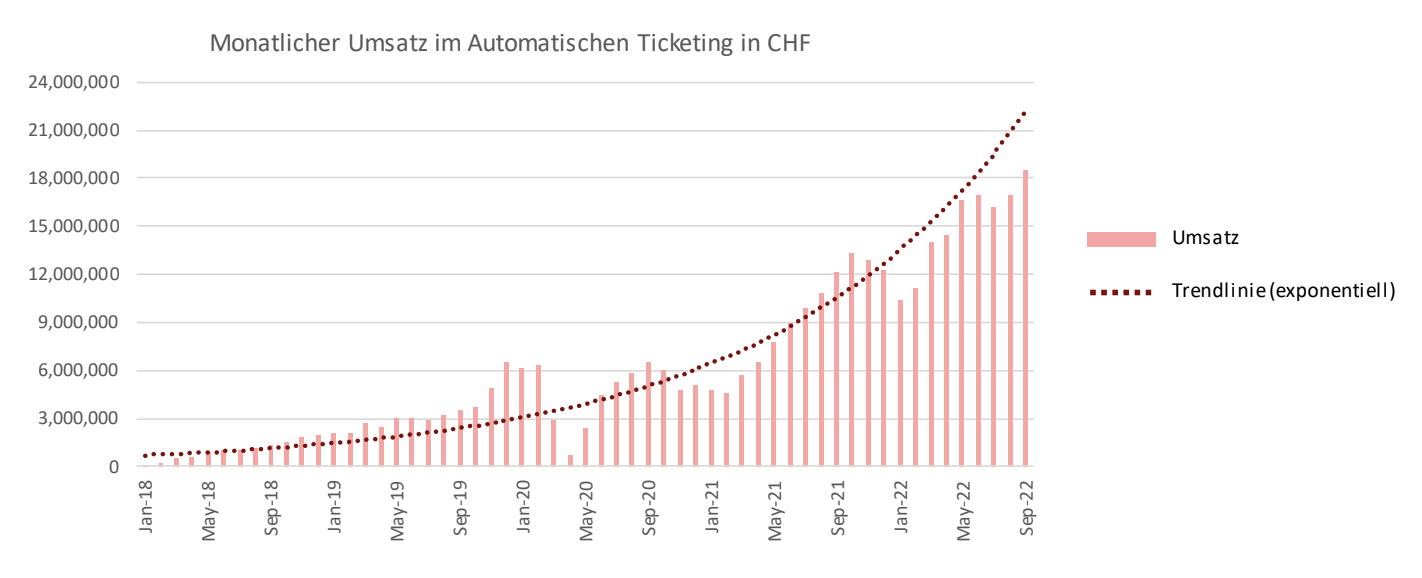

The smart ticketing solution has proven to be a very popular addition to existing public transport sales channels, and has led to a fall in the use of ticketing machines and ticket counters. Between September 2021 and September 2022 alone, automatic ticketing increased by 2.3 percentage points compared to all other sales channels. "It currently accounts for 14% of sales", the report notes. It seems that travellers prefer the convenience of the digital check-in/check-out solution over the analogue paper ticket sales route, particularly for shorter bus and train journeys; these two modes of transport account for more than three quarters of all automatic ticketing journeys (77%) in Switzerland; around one third of journeys (35%) are multimodal (e.g. combination of train and tram or train, tram and bus). Occasional travellers primarily use the automatic ticketing solution as the ideal add-on to their Swiss public transport season ticket or travelcard.
Ticket sales across all sales channels, 2010 to June 2022:

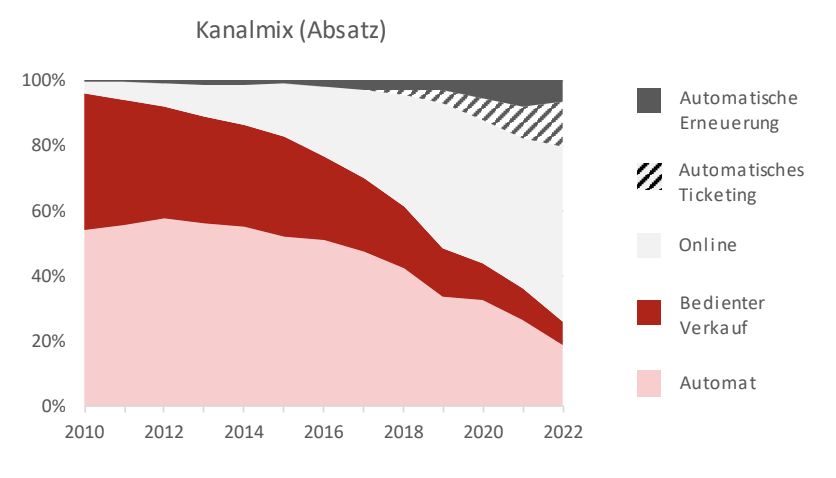
Cost-saving solution
The positive results for automatic ticketing are encouraging the Swiss public transport industry to make their sales channels 100% digital. One argument in favour of such a move is that the solution makes public transport easier and more convenient to use which will increase ridership and help protect the environment. However, a more important argument is that automatic ticketing will cut costs because it reduces the need for analogue sales channels like ticket machines and staffed ticket counters, which are expensive to run and maintain.
German transport companies are also switching to automatic ticketing. Erfurt, in Thuringia, are currently removing the 90 ticket vending machines on board the city's trams. The city's public transport operator EVAG decided to do so after a successful market test of FAIRTIQ technology. It is a move that ultimately will save the company two million euros in investment costs. Anyone travelling on the Central Thuringia Transport Association (VMT) network has been able to benefit from FAIRTIQ's postpaid ticketing solution for the last 2.5 years. On average, more than 5,000 journeys are made via the FAIRTIQ solution every day in Thuringia. As FAIRTIQ CEO Gian-Mattia Schucan explains, "Our VMT success story clearly proves that digital transformation is possible in the public transport sector, and shows how it can be done."
Automatic ticketing: the leading sales channel by 2030
What the Swiss-wide market analysis also shows is that occasional travellers account for the highest share of users of contactless ticketing solutions. Almost half of all customers (46%) who pay for their journey via an automatic ticketing system use public transport between one and three times a month. According to the report, it is frequent users, however, who generate two-thirds of sales. These are two trends that make automatic ticketing an interesting sales channel for transport companies, as it enables them to respond to different user groups through targeted marketing and innovative fare offers that are tailored to their specific needs.
Alliance SwissPass forecasts strong, sustained growth for automatic ticketing in the coming years. It also predicts that 40% of tickets will be purchased via this channel by 2030. A rising number of transport associations In Germany and France is embracing FAIRTIQ's ingenious technology. FAIRTIQ partners can depend on the Swiss company when it comes to implementing innovative solutions: B2B offers; employee mobility budgets designed around the pay-per-use principle; monthly fare capping, whereby public transport users do not pay for additional journeys above a certain amount during a calendar month, and the fares in excess of this amount are credited to the user's account to help cover the cost of their public transport use the following month; and bespoke marketing campaigns for new fare models (e.g. peak/off-peak fares).


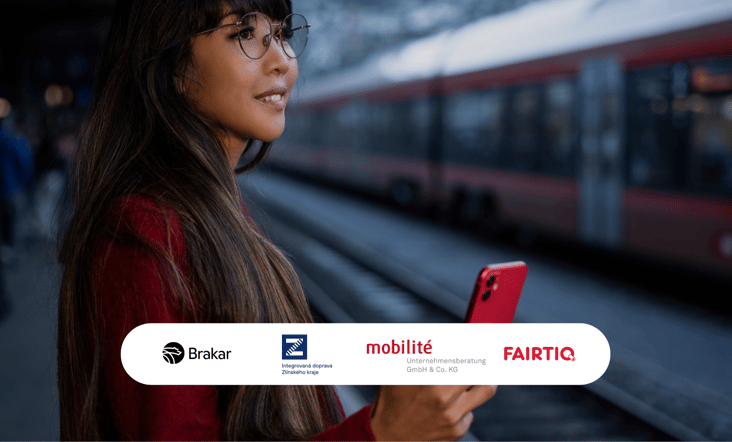
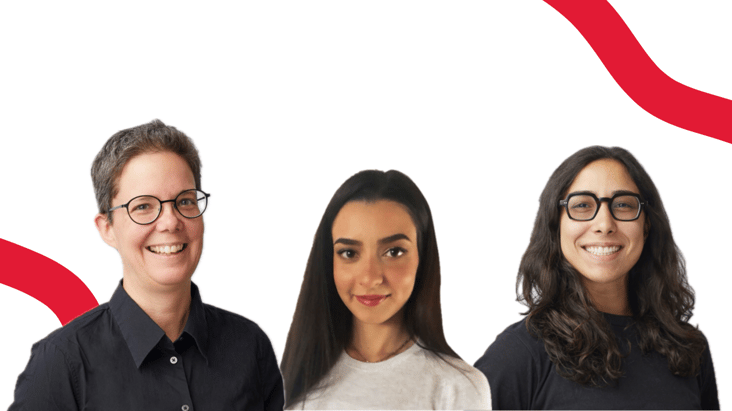
.png?width=732&name=image%20(2).png)


Share